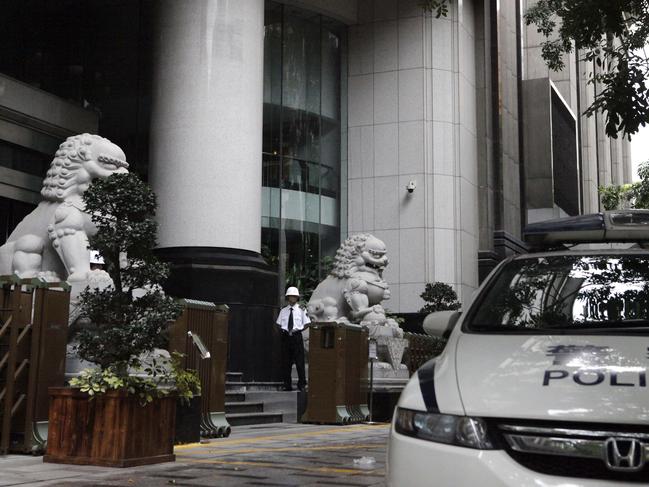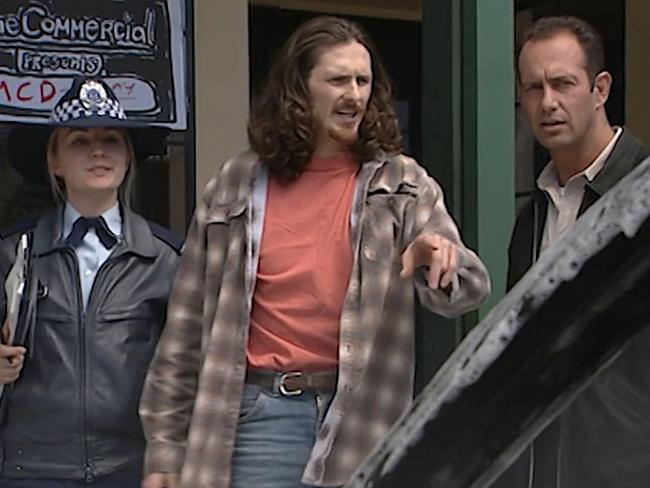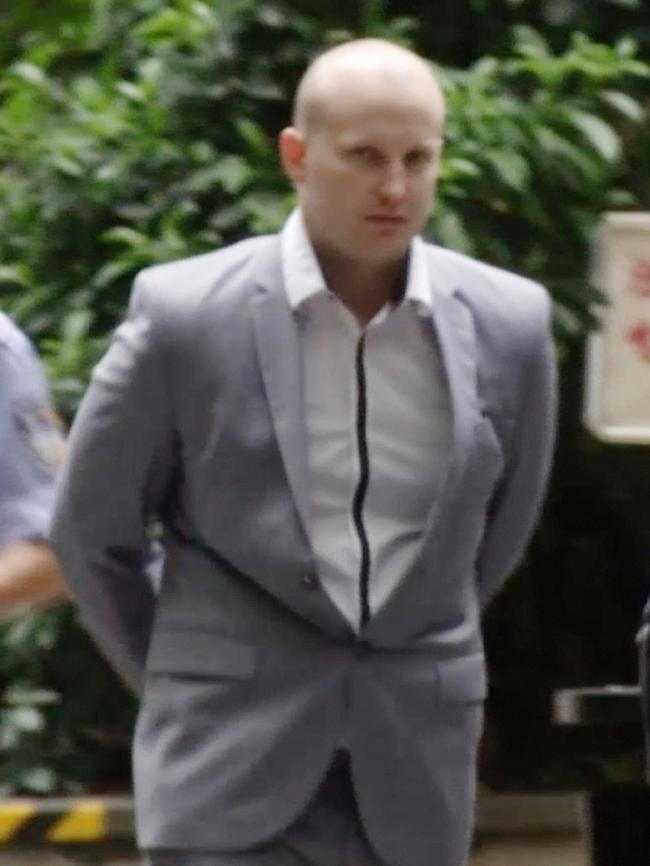Karm Gilespie: How Australian on death row in China could win appeal
Karm Gilespie will soon learn whether or not a Chinese court will uphold his death sentence, with his appeal likely to be riding on one key thing.
Crime in Focus
Don't miss out on the headlines from Crime in Focus. Followed categories will be added to My News.
The social media posts were the sorts of things many Australians write, every single day.
Inspirational quotes and shared links. A January 1 resolution to “make each day count”. Notification of a new relationship on June 21. A reflection on the true spirit of Christmas, dated November 24.
And then: nothing.
Karm Gilespie’s online life stops at that point in 2013, with no reference to a forthcoming trip to China, and no hint of trouble.
Friends who posted about the 55 year old this week – before his family begged for their silence, arguing it would not help his case – revealed he disappeared suddenly, leaving them to wonder what happened to their friend.
The former actor and motivational speaker was arrested on New Year’s Eve in 2013 at Guangzhou’s Baiyun International Airport after authorities allegedly found more than 7.5 kilograms of methamphetamine stored in his checked-in luggage.
Mr Gilespie was sentenced to death by the Guangzhou Intermediate People’s Court on June 10, and given 10 days – standard in the Chinese legal system – to appeal.

Mr Gilespie’s sudden death sentence came amid a deteriorating relationship between Australia and China, with the Morrison government noticeably toughening its own rhetoric against Beijing.
Tensions that have built over several years regarding tech hacking, Beijing’s actions in the South China Sea and its treatment of democracy protesters in Hong Kong have only worsened in the wake of the coronavirus outbreak and China’s punitive trade actions against Australia.
Last year the Lowy Institute Poll found that Australians’ trust in China had fallen to its lowest level since polling on the subject began in 2005.
It’s worth noting that in 2011 – just a couple of years before Mr Gilespie’s arrest – the same poll showed Australians regarded China warmly. In a poll of nations to whom Australians felt favourably, China ranked number eight.
Whether Mr Gilespie is a casualty of Australia-China tensions or not, time is running out for him with Saturday his last day to appeal.
Any appeal will most likely be heard by the Guangdong Provincial High Court.

Australian embassy officials met with Mr Gilespie via video link this week, and he is being represented by Zou Jianhong from the Hongmian law firm in Guangzhou.
This week Mr Zou told the ABC that Mr Gilespie’s trial had occurred on two dates – one in 2014 and one in 2015.
China legal expert Associate Professor Colin Howes from UTS told News Corp that Mr Gilespie’s best hope to overturn the sentence will be if his legal team can convince the appellate court of his previous good character.
“Hopefully there’s some kind of evidence that he just got caught up in something that wasn’t part of his normal behaviour, rather than he has somehow slipped from his previous good behaviour and got into drugs himself,” he told News Corp.
“(If he) didn’t have a typical crime background, if he was a perfectly decent citizen and there’s a chance that this was some kind of set-up; if they can provide some kind of evidence of his good behaviour in the past, it might make a difference in them being a bit more lenient, giving him the benefit of the doubt – possibly a long jail sentence rather than a death sentence,” Assoc Prof Howes said.
“But a lot depends on the circumstances and we don’t really know what happened when he was arrested and what the circumstances were. That hasn’t been revealed.”

Mr Gilespie is one of a small number of Australians who were all charged with attempting to smuggle drugs out of Guangzhou in separate incidents in 2013 and 2014.
Former Adelaide jockey Anthony Bannister appealed a “suspended” death sentence in 2016 over his charge and is still awaiting the verdict, while dual Australian/New Zealand national Peter Gardner is also awaiting sentencing after trial.
Mr Gardner’s travelling companion Kalynda Davis was also arrested but quietly released after a month in detention, once Australian authorities were reportedly able to convince their Chinese counterparts that she was innocent of the drug smuggling charges. She is now living in Gladstone.
The Department of Foreign Affairs and Trade this week told News Corp that there are currently 62 Australians detained in China, but citing privacy reasons they were unable to specify how many were on drug-related charges. Although, one media report from 2016 said there were 42 Australians in Chinese jails, nine of whom were there for drug-related matters.


Assoc Prof Howes said that if Mr Gilespie’s appeal fails, the matter will go to the Supreme People’s Court in Beijing, China’s highest court.
“They review all death sentences before they are carried out just in case there was something wrong with it at the local government level,” he said. “So that’s going to happen unless he is found innocent – which in these kinds of cases is highly unlikely.”
If the Supreme Court upholds a death sentence, execution is usually carried out within weeks, he said.
Amnesty International campaigner Rose Kulak told News Corp that China’s use of capital punishment far exceeded any other country, with the numbers running into the thousands each year. Executions were usually carried out by firing squad or lethal injection, she said.
“In 1977, when Amnesty International started campaigning against the death penalty there were 16 countries that weren’t executing; now we’re up to 142 in law and practice,” Ms Kulak said.
“So China is going against the trend about what’s happening globally.”
Originally published as Karm Gilespie: How Australian on death row in China could win appeal
